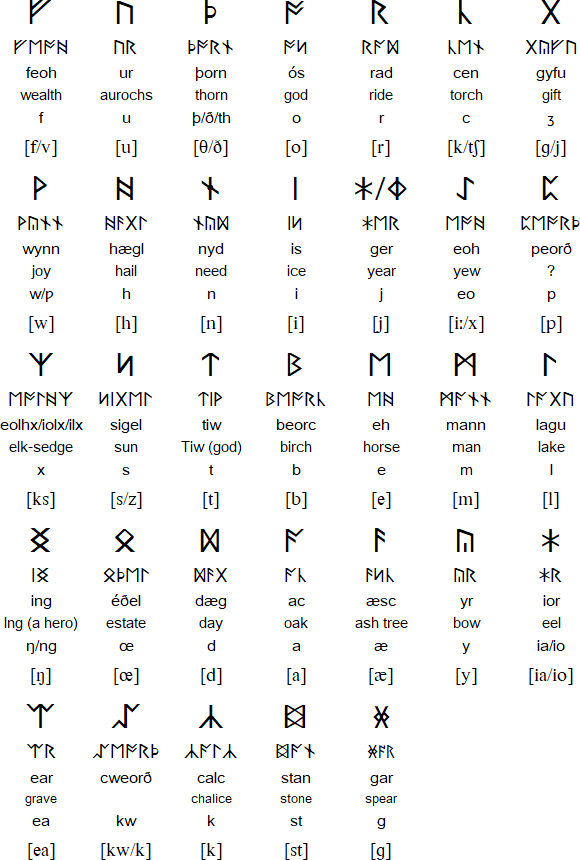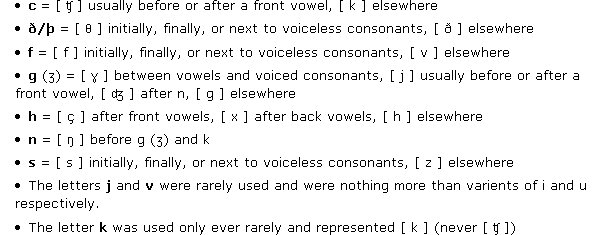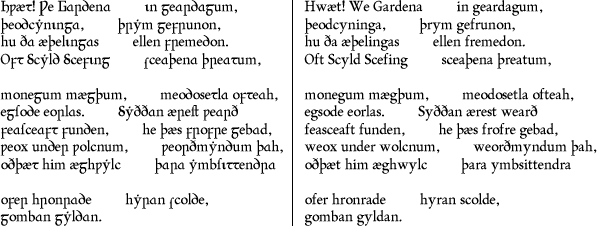Old English / Anglo-Saxon (Englisc)
Old English was the West Germanic language spoken in the area now known as England between the 5th and 11th centuries. Speakers of Old English called their language Englisc, themselves Angle, Angelcynn or Angelfolc and their home Angelcynn or Englaland.
Old English began to appear in writing during the early 8th century. Most texts were written in West Saxon, one of the four main dialects. The other dialects were Mercian, Northumbrian and Kentish.
The Anglo-Saxons adopted the styles of script used by Irish missionaries, such as Insular half-uncial, which was used for books in Latin. A less formal version of minuscule was used for to write both Latin and Old English. From the 10th century Anglo-Saxon scribes began to use Caroline Minuscule for Latin while continuing to write Old English in Insular minuscule. Thereafter Old English script was increasingly influenced by Caroline Minuscule even though it retained a number of distinctive Insular letter-forms.
Anglo-Saxon Futhorc
Old English / Anglo-Saxon was sometimes written with a version of the Runic alphabet, brought to Britain by the Anglo-Saxons until about the 11th century.
Runic inscriptions are mostly found on jewellery, weapons, stones and other objects. Very few examples of Runic writing on manuscripts have survived

Old English alphabet

Notes
- Long vowels were marked with macrons. These were not written originally used in Old English but are a more modern invention to distinguish between long and short vowels.
- The alternate forms of g and w (yogh and wynn/wen respectively) were based on the letters used at the time of writing Old English. Today they can be substituted for g and w in modern writing of Old English.
- Yogh originated from an insular form of g and wynn/wen came from a runic letter and was used to represent the non-Latin sound of [ w ]. The letters g and w were introduced later by French scribes. Yogh came to represent [ ç ] or [ x ].
Old English pronunciation

Notes

Sample text in Old English (Prologue from Beowulf
)

Links
The Electronic Introduction to Old English
http://www.wmich.edu/medieval/resources/IOE/
Learn Old English - a basic introduction
http://www.jebbo.co.uk/learn-oe/contents.htm
Ða Engliscan Gesiðas - the society for people interested in all aspects of Anglo-Saxon language and culture: http://tha-engliscan-gesithas.org.uk/
Old English dictionaries
http://home.comcast.net/~modean52/oeme_dictionaries.htm
http://lexicon.ff.cuni.cz/app/
Beowulf in Hypertext
http://www.humanities.mcmaster.ca/~beowulf/
.